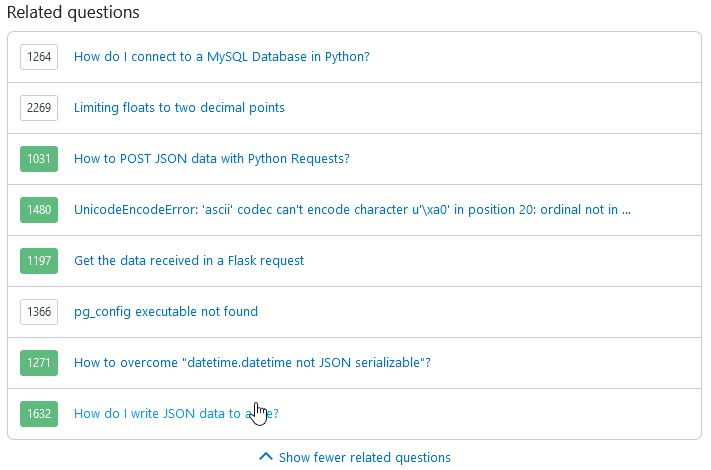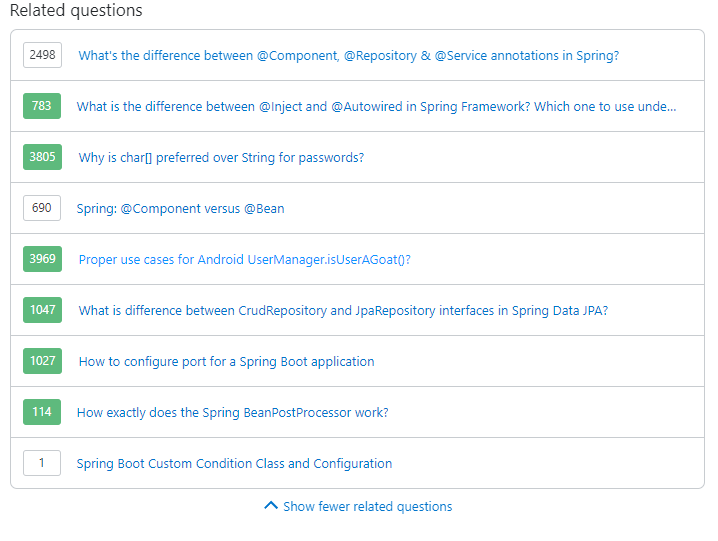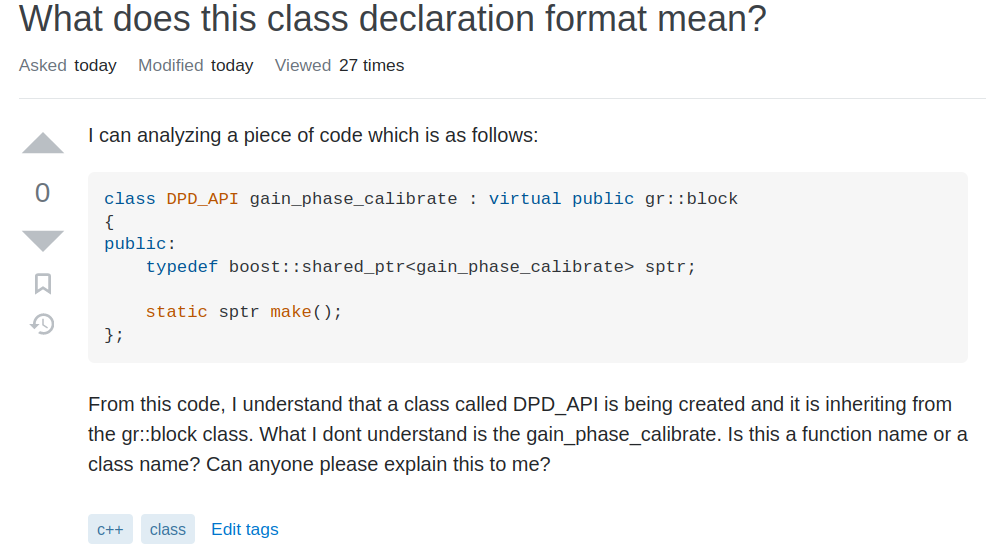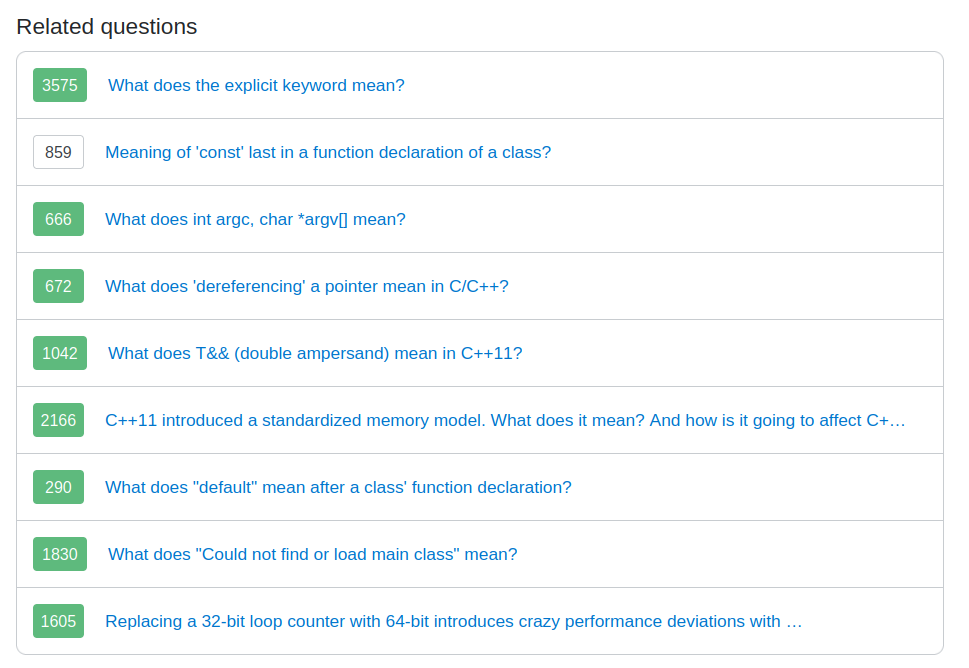Please check out this post for more context on the Content Discovery initiative where we go into detail about the background, overview, and objective of this project as well as information on past experiments and information on experiments going forward.
The current experiment we’ve released is incorporating machine learning (ML) to improve the relevance of related questions.
During this round of experiments, we are going to be incorporating machine learning (ML) to improve the relevance of related questions. We saw all of your feedback on the A/B testing related questions within the answers list post and feel that this will be an improvement in the suggested content.
This experiment will launch today and will run for at least two weeks. During this time, the questions recommended by the ML model will be available on Stack Overflow question pages for both registered and anonymous users.
We will also be measuring clickthrough rates (CTR) of questions from the control group (powered by Elasticsearch) and the experiment group (powered by ML). The participants are chosen at random and we do not have control over who gets the test or who doesn’t at this time. You could try a different browser but we cannot guarantee that you'll get bucketed. However, as we have plans in the future to iterate on the model for recently posted questions, they will be exempt from the ML model.
Feedback
We are looking to find out how this change has affected the questions that are being suggested, and if they are more relevant. Please let us know if you notice increased relevancy. We are monitoring this closely and will make adjustments to the model based on your feedback. Our goal is to make the related questions as relevant as possible to users, so we really value your feedback which can help us understand if we are moving in the right direction.





